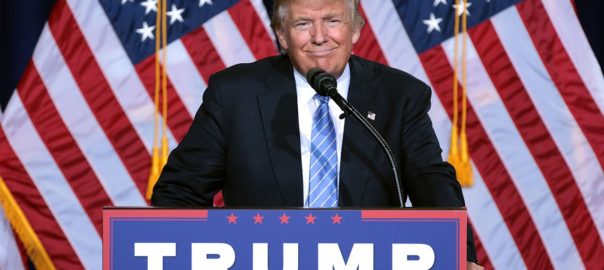Stem Cell Researchers React to the Implications of a Trump Presidency

In one of the most divisive presidential elections in modern times, scientists are speaking out to make their feelings known. The most important issue to many scientists right now is the stance that President-elect Donald Trump will take regarding scientific research that uses embryonic stem cells and fetal tissue. In recent decades, both realms of scientific research have proved controversial and have often suffered from cuts in federal funding and extensive social backlash.
Since Trump has said very little regarding embryonic stem cell research, scientists like Alta Charo, a professor of law and bioethics at the University of Wisconsin, aren’t sure what to think. Will he introduce new restrictions? Will he allow the status quo to remain, or possibly even support the idea? Charo is also the co-chair of the National Academy of Medicine Forum on Regenerative Medicine, and she feels that Trump’s Vice President-elect Mike Pence will ultimately dictate the outcome of embryonic stem cell research.
A History of Embryonic Stem Cell Research
The field of embryonic stem cell research came into the public eye during President George W. Bush’s administration, and he placed federal funding restrictions that President Barack Obama later removed. When Obama made that decision in 2009, Pence was very vocal about it. Pence wrote an op-ed stating, “I am a Christian who believes that life begins at conception and that a human embryo is a human life. Therefore, I believe it is morally wrong to create human life to destroy it for research. Not only that, I believe it is morally wrong to take the tax dollars of millions of pro-life Americans, who believe that life is sacred, and use it to fund the destruction of human embryos for research.”
Pence’s opinions are shared by many who believe that it is inappropriate to utilize human embryos for research, but the scientific community tries to remind opponents of the realities of the research. An embryo is created during in-vitro fertilization (IVF), when a woman’s egg and man’s sperm are combined in a petri dish before being implanted in the hopes of getting a woman pregnant. When IVF embryos are utilized to create stem cells, it is only ever done when the embryos that are no longer viable for implantation, and the donors must always provide their explicit permission for their embryos to be utilized as stem cells. If these extra embryos aren’t donated to research, they must be destroyed because they have no other use.
The Incredible Benefits of Embryonic Stem Cell Research
Embryonic stem cell research is largely to thank for the remarkable advancements made in the field of regenerative medicine. One single embryo can provide millions of stem cells that are then used to develop treatments and cures for a wide variety of serious conditions include multiple sclerosis, spinal cord injury, diabetes, Parkinson’s disease, and many others.
As Kevin McCormack, the communications director at California Institute for Regenerative Medicine, succinctly expressed, banning embryonic stem cell research “would be like putting a genie back in the bottle.”
It’s not hard to find real life examples of patients whose lives have been completely transformed with the help of embryonic stem cells. A paralyzed man at the University of California, for example, regained hand movement after stem cell therapy, and a blind main recently regained his sight for the first time in 40 years thanks to stem cell therapy. If the Trump Administration limits or outlaws the use of embryonic stem cell research, so many different life saving treatments will be known and realized but not available. It will be devastating.
State vs. Federal Funding
Though many states are working to provide funding for embryonic stem cell research, federal funding is essential, and there’s no way around it. Dr. Allen Spiegel, dean of the Albert Einstein College of Medicine, sat before senators in 2009 and “stated that banning funding for research on human embryonic stem cells was like tying one hand behind the backs of stem cell investigators. Lifting the ban cannot eliminate the effect of years of delay, but harnessing the full power of the NIH to review and fund scientifically meritorious research projects will accelerate progress toward the goal of helping people suffering from diabetes, neurologic diseases, and many other conditions.”
Only time will tell what Trump and Pence intend to do-or not do-in regard to embryonic stem cell research, and in the meantime scientists will be collectively holding their breath.
Image Credit: https://en.wikipedia.org/wiki/Donald_Trump_presidential_campaign,_2016


